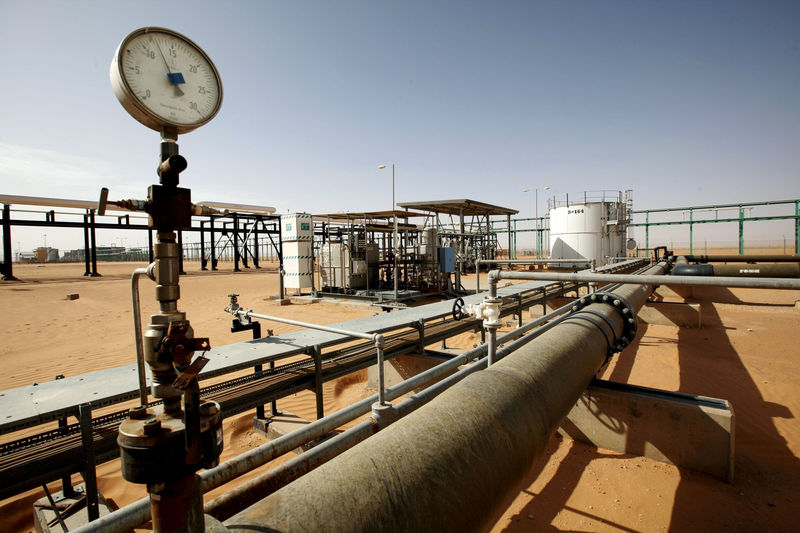 © Reuters. FILE PHOTO: A general view of the El Sharara oilfield, Libya
© Reuters. FILE PHOTO: A general view of the El Sharara oilfield, LibyaBy Ayman al-Warfalli and Ahmed Elumami
BENGHAZI, Libya/TUNIS (Reuters) – Libya’s biggest oilfield, El Sharara, will reopen, the country’s internationally recognized government said on Wednesday after Prime Minister Fayez al-Sarraj flew there to persuade protesters to end a blockage.
Production had not restarted yet as oil workers were waiting for orders from state oil firm NOC. A spokesman for NOC declined to comment when Reuters called. Sarraj’s office gave no time frame.
A spokesman for a group of tribesmen, who took over the 315,000 barrels a day-field with state guards on Dec 8, said the government had agreed to implement their demands within a week from Dec 22.
“El Sharara oilfield will be reopened after reaching an agreement with Fayez al-Sarraj,” Mohammed Ahmed said. “Urgent (demands), like liquidity and fuel, will start (being implemented) on Saturday, other demands will be implemented within 45 days”, he said.
The Tripoli-based government had earlier announced a development fund worth 1 billion Libyan dinars ($717 million) for the long-neglected south in a bid to appease the protesters.
The tribesmen had demanded better state services for the south, which produces around 400,000 bpd of day, but lacks basic facilities such as hospitals or electricity.
The guards, which NOC said had facilitated the protest, had demanded salary payments they said they were owed.
It was not immediately clear when NOC would agree to reopen the field. Its Chairman Mustafa Sanalla had denounced the protesters as “militia” NOC would not negotiate with — comments which had drawn criticism of the Tripoli-based chief of staff.
Sarraj said in a statement he had met the protesters at the field and understood the factors driving their action, describing the demands as “legitimate”.
El Sharara crude is transported to the Zawiya port, which is also home to a refinery.
NOC runs the field with Spain’s Repsol (MC:), France’s Total, Austria’s OMV and Norway’s Equinor, formerly known as Statoil (OL:).
Libya had in recent months boosted output to up to 1.3 million barrels a day, its highest level since 2013 when a wave of protests and blockages against oil facilities began.
NOC is widely seen by armed groups and civilian protesters as an easy target to milk in the absence of a weak state and deteriorating public services.
($1 = 1.3939 Libyan dinars)
Fusion Media or anyone involved with Fusion Media will not accept any liability for loss or damage as a result of reliance on the information including data, quotes, charts and buy/sell signals contained within this website. Please be fully informed regarding the risks and costs associated with trading the financial markets, it is one of the riskiest investment forms possible.
Source: Investing.com




























